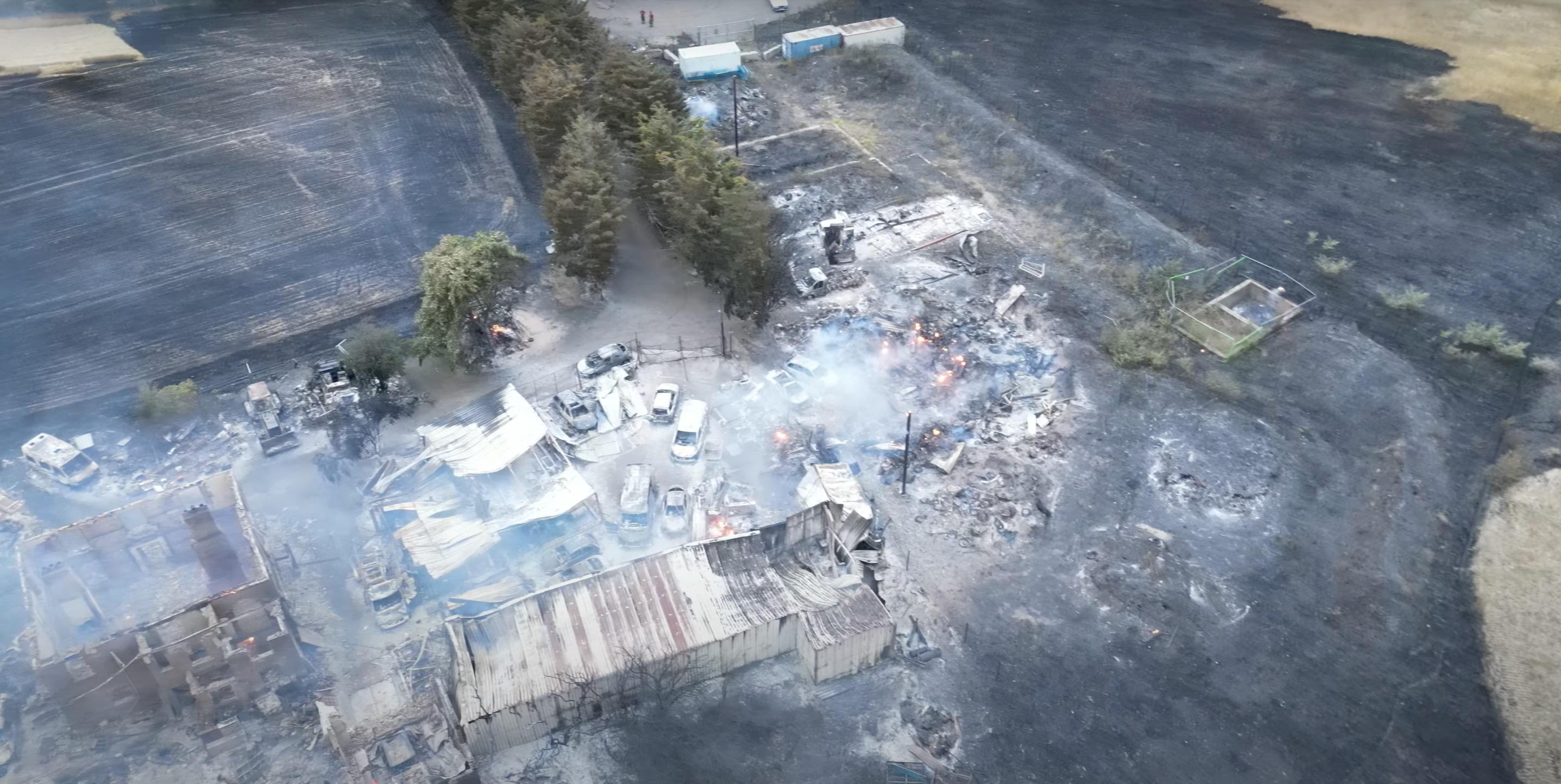2022 was another year of “unprecedented” weather. Provisional figures indicate that it was the warmest so far recorded, with almost every month hotter than average. Much of the country had a notably mild New Year, despite the cold snap in mid-December. This was preceded by the third warmest autumn on record, and that by a scorching summer, with the hottest day ever recorded in July. But summer’s heat waves were also accompanied by a rise in the number of daily deaths across the country. People around the world are becoming increasingly more aware of events like these, and their impact in the UK is particularly concerning amidst the ongoing cost-of-living, energy, and NHS crises.
 |
| Aerial view of the Wennington wildfire, London, 19 July 2022. Source: Harrison Healey, Wikimedia Commons (CC BY 3.0). |
Ahead of the Fourth UK Climate Change Risk Assessment (CCRA4), the Climate Change Committee (CCC) are asking what we know about the impact of past and present climate change on natural and human systems here in the UK specifically. At the global level, the 2021 IPCC sixth assessment working group I (AR6 WGI) report concluded: “It is unequivocal that human influence has warmed the atmosphere, ocean and land.” This single sentence has been informed by decades of research by people at the cutting edge of climate science, and the evidence to support it has grown stronger in every IPCC report since they began. The report goes on to say: “Human-induced climate change is already affecting many weather and climate extremes in every region across the globe.” In last year’s follow-up AR6 WGII report on impacts, adaptation, and vulnerability, an extensive assessment of the science led to the conclusion that the magnitude and proliferation of extremes caused by human-induced climate change were having widespread, adverse impacts on both nature and people. Last summer’s heatwaves, and the concurrent dangers to health, homes, and the environment, were a graphic illustration of the nature of such human-induced impacts.
The study of impacts that informed this conclusion is the remit of climate scientists who specialise in “detection and attribution”. This is about looking at what is changing around us and being able to pinpoint the cause(s) – and particularly, whether human-induced climate change is at the root. To inform CCRA4, the CCC have commissioned a joint Bristol and Exeter University team to conduct a comprehensive review of the detection and attribution of climate change in the UK. The first part will cover the detection and attribution of weather and climate changes in the UK, relevant to specific “Climate Impact Drivers”. The second will cover attribution of impacts on societal, infrastructural, economic, and biodiversity sectors. We aim to find out what studies have been done so far, where the gaps are, and whether they can be filled, or if they would require substantial new methodological or data advances. We aim to identify variables which are key drivers of multiple impacts, and, importantly, where further attribution analysis is needed – especially when the impacts are critical for UK risk.
Detection and attribution is a rapidly evolving field, with focus only relatively recently moving from meteorological attribution (e.g., weather extremes) to impact attribution (e.g., consequences for humans and ecosystems). Our systematic review of the literature and final report will be key to tying it all together, especially with the UK focus required by the CCC. But to be able to present the most up-to-date findings, and thus make informed recommendations, we need to ensure that we have considered all relevant studies. So, if you, or someone you know, has published on this topic – whether UK specific or not – we’d like to know about it! Help shape and inform the next UK Climate Change Risk Assessment.
————————-
This blog was written by Regan Mudhar, Professor Dann Mitchell (University of Bristol), Professor Richard Betts and Professor Peter Stott (University of Exeter/UK Met Office).
